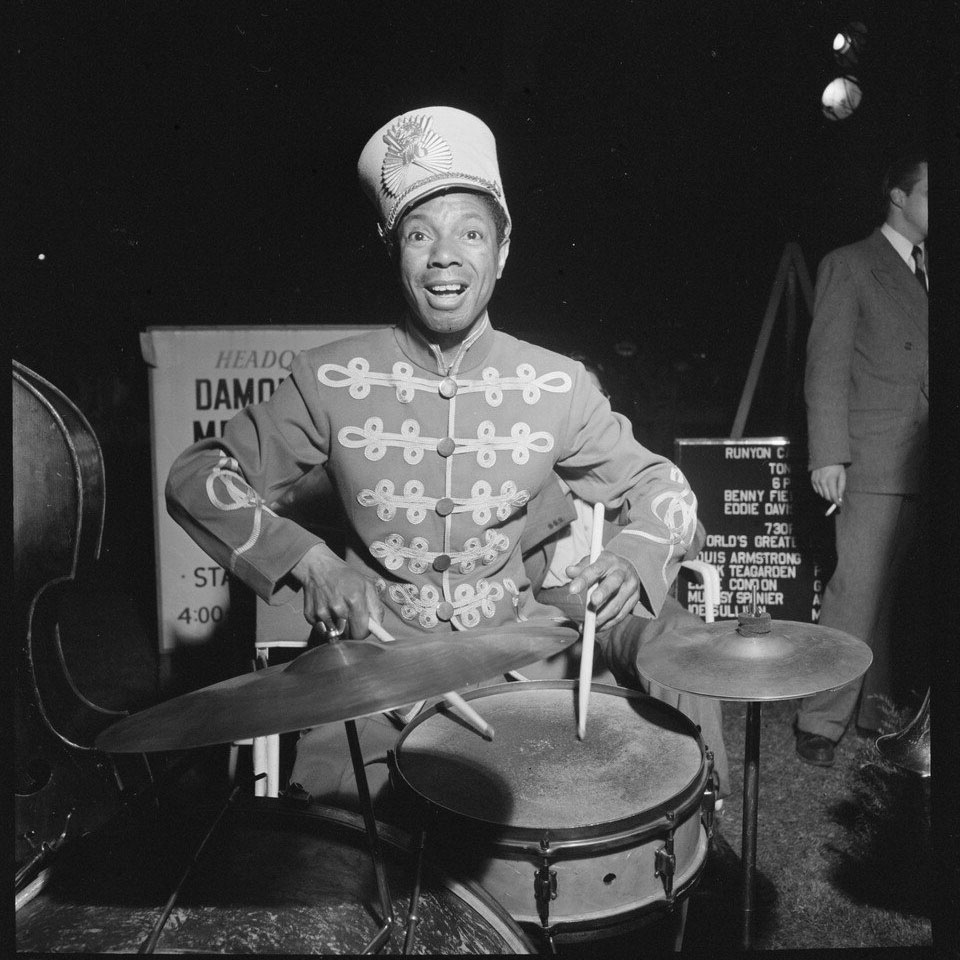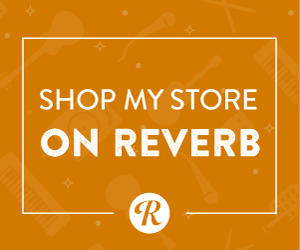During a college big band rehearsal, I was baffled by a complex chart. The band director came over to the right side of the drumset (my music stand was on the left, over the hi-hat), and placed his head a few inches from my own. With his face a bright shade of red, he screamed at the top of his lungs, "Groove!" As you can imagine, his dramatic outburst had no effect on my ability to interpret the chart. He then grabbed my 5-page chart off the stand and flung it across the room. 'Now play the song!'

Because I opted out of junior high and high school band, instead, choosing to play in a number of rock bands, I didn't have any big band experience before I got to college. When I finally found myself "behind the music stand", I was literally thrown to the wolves.
Junior high and high school drummers, who sign up for jazz band, often find themselves in similar straits. Many don't have an inkling about what jazz music is and have limited chart-reading chops. With their only crime being a desire to play drumset in school, they end up facing steely glares from the rest of the big band (who have a much easier role) and the wrath of the band director (who quite often doesn't have a clue about drumming).
Disconnect
When you ask a young person today, "What is jazz music" or "What is big band music," they answer, "I don't know" or "Elevator music". You immediately realize the challenges that lie ahead for them in their school band.
Many young people view jazz (especially big band jazz) as antiquated, a fact that is not surprising. Jazz originated as New Orleans Dixieland in the early 1910's. Big bands started popping up in the mid-1920's, and big band dance music was the popular music of the 30's and 40's, when swing was familiar to most of the population. In the years that followed, print music publishers turned this music into charts for school-sponsored bands (and made lots of money for the publishers). But now, almost a hundred years later, Hip/Hop, Alternative Rock, Hard Core, and New Country are ‘mainstream', while jazz music has become more of an art form. Paradoxically, school music programs still focus on jazz band music, though students have little to no background or experience with big band jazz. This may be why drummers in junior high and high school experience a disconnect when reading and playing jazz charts.
An Opportunity
Despite this contradictory situation, big band music fortunately provides a great training ground for drummers. The sensation of playing with so many musicians at the same time is incomparable. The drummer is the only musician in the big band that interprets charts and makes constant shifts in judgment and decision-making. Acquiring new time feels (swing, funk, Latin, and blues), using dynamics, playing with touch, following a conductor, and grooving with a jazz rhythm section are additional educational opportunities. However, most often, drummers are left struggling to figure out for themselves how to access these skills, while keeping the whole band on track. They are expected to quarterback the team without mentorship.
Help Needed!
The question remains, "What is the cure for the school jazz band drummer dilemma?" The answer "Qualified drummers are needed to lend a hand to local junior high or high schools big bands!"
Volunteerism is challenging during tough economic times. But, whether or not you get paid, you will find the experience rewarding, and you will be helping out a future generation of drummers. While schools sometimes have money set aside for supporting band programs, funding is rare, but the benefits are great. For example, private drum teachers might find that volunteering is an ideal way to recruit prospective drum students. Drum sales professionals with no big band experience could provide valuable assistance by making sure that the school drumset is tuned and set up properly. In turn, they may find customers interested in their products. Many employers encourage school partnerships by allowing release time for workers to support students in need. What better to pass on musicianship than through mentoring young drummers.
Conclusion
Its time for the Big Band Bailout! Contact your local school music program. You can only practice your paradiddles so much!
Tips to Passing Your Jazz Band Audition
This article is in memory of Bill Miller, who encouraged me as a writer.






